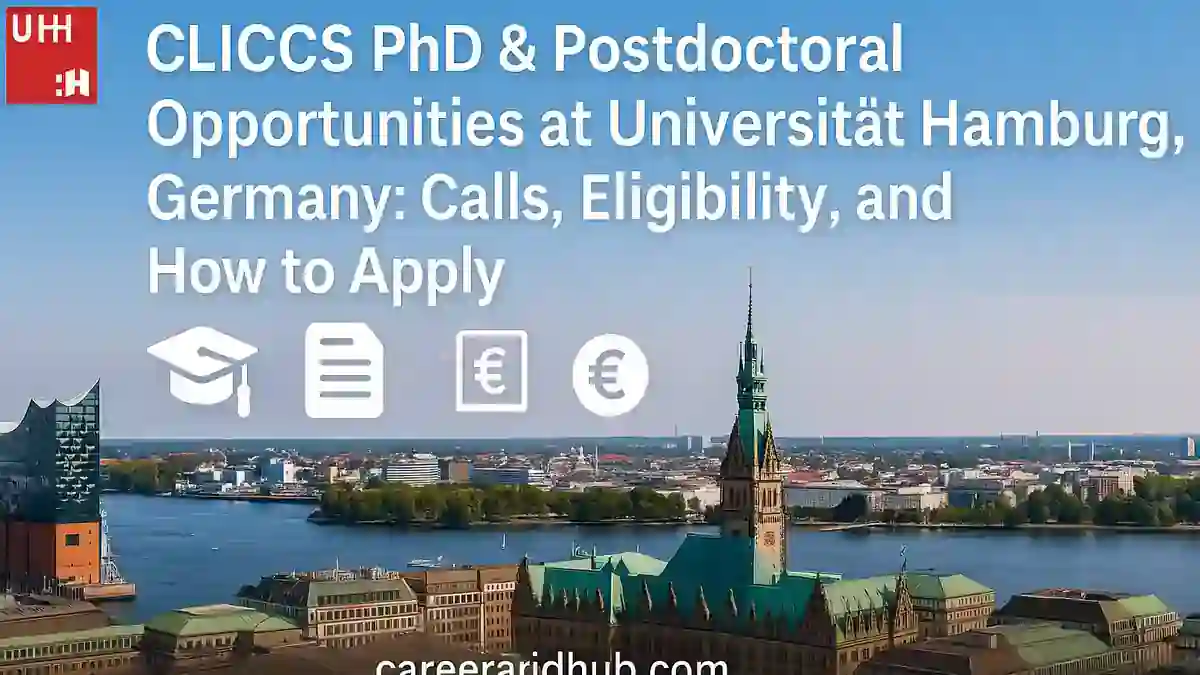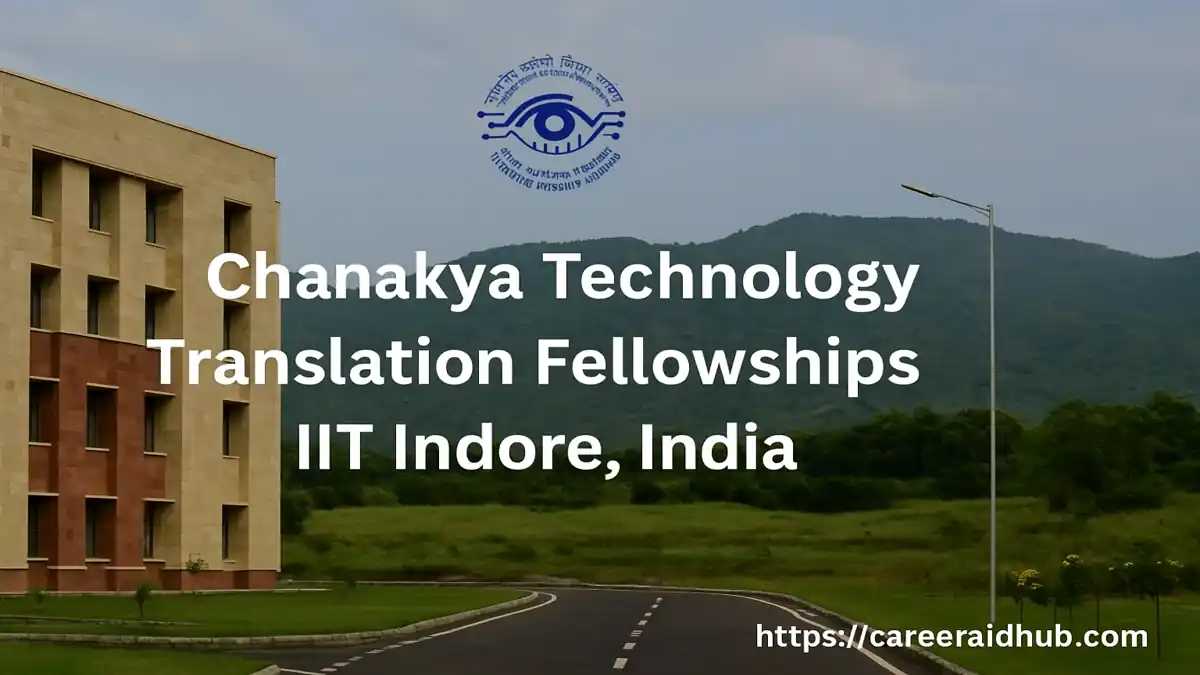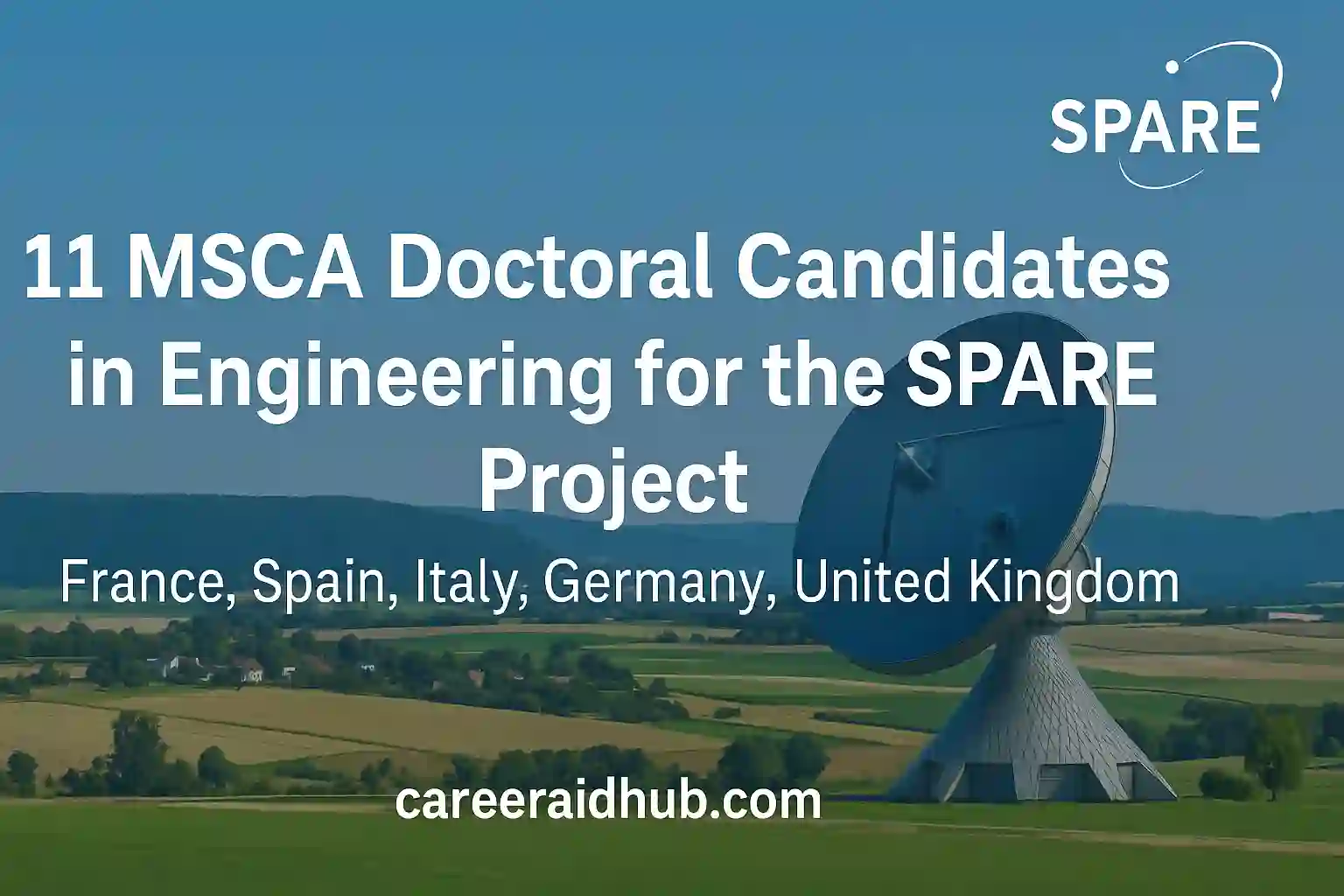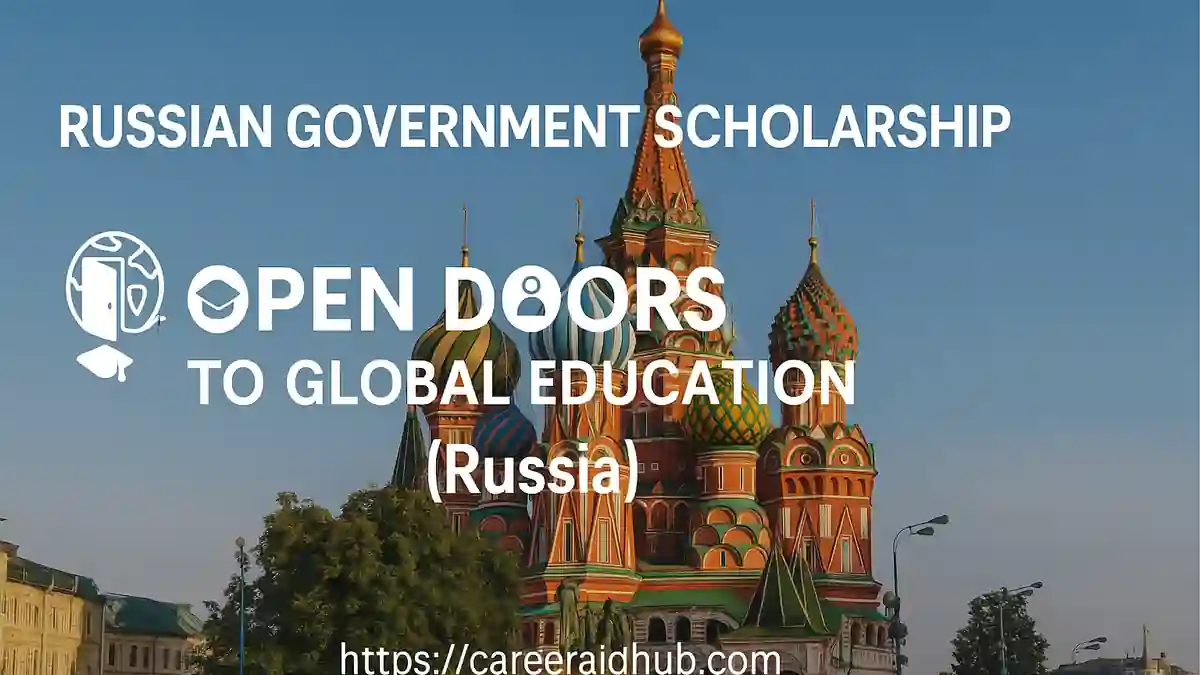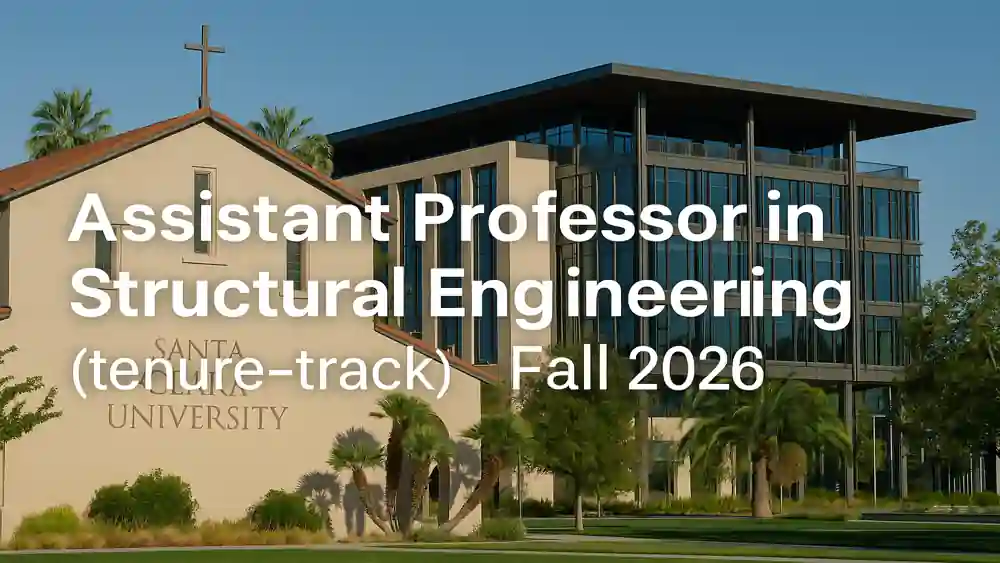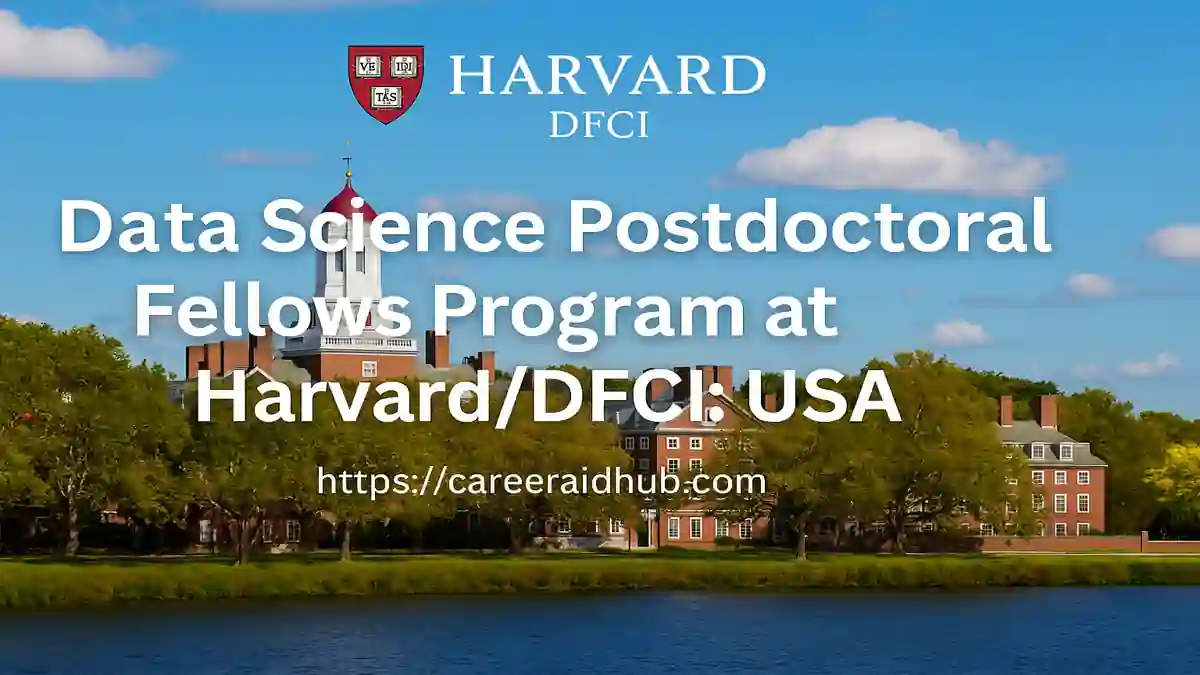CLICCS PhD & Postdoctoral Opportunities at Universität Hamburg, Germany: Calls, Eligibility, and How to Apply
The Cluster of Excellence “Climate, Climatic Change, and Society” (CLICCS) unites leading natural and social scientists to study climate dynamics and climate-society interactions with real-world impact. Its dedicated Career / Jobs page lists roles for doctoral candidates (often advertised as “Research Associate” with doctoral studies possible) and full postdoctoral researchers. Notably, in the transition to CLICCS II (starting 2026), the cluster plans to fill 28 doctoral and 28 postdoctoral positions, reflecting significant expansion and cross-disciplinary research momentum.
Looking for high-impact climate research roles? The Cluster of Excellence “Climate, Climatic Change, and Society” (CLICCS) at Universität Hamburg offers funded PhD and postdoctoral positions across natural and social sciences. Below is a clear, detailed guide to open calls, requirements, and smart application steps—tailored to help you apply confidently.
What is CLICCS & Its Career Portal
CLICCS fosters research at the intersection of climate processes and societal transformation, encouraging collaborations that bridge modeling, field data, qualitative inquiry, and policy analysis. Its hiring gateway centralizes announcements and points to the relevant application portals, ensuring candidates can quickly identify the right track—PhD
Why this matters to applicants
-
-
Interdisciplinary scope: Projects often integrate modeling with social research, policy, or communication. This broad remit welcomes applicants from earth system sciences, data science, social sciences, economics, political science, and media studies.
-
Structured pathways: “Research Associate” postings may serve as doctoral-entry positions, while “Postdoctoral Researcher” roles target those with a completed PhD.
-
Consistent updates: The portal is refreshed as funding lines open, partner units post roles, and CLICCS II positions go live.
-
Current Calls (as of latest update)
Below are the open positions currently advertised. Titles, notes, and deadlines are preserved exactly as provided, with light editorial expansion for clarity.
| Position | Discipline / Focus | Notes | Application Deadline |
|---|---|---|---|
| Research Associate (m/f/d): Extreme adaptation to climate change | University degree; doctoral studies possible | This is a PhD-level / early career position. | November 4, 2025 |
| Postdoctoral researcher (m/f/d): Extreme adaptation to climate change | Completed doctorate in social sciences or related field | Postdoc role | October 20, 2025 |
| Research Associate (m/f/d): Climate finance | PhD level / doctoral possibility | — | October 14, 2025 |
| Research Associate: Social construction of climate moods | University degree + doctorate | — | October 14, 2025 |
| Research Associate: Response of carbon sinks under deep decarbonization | University degree + doctorate | (Already passed) | October 8, 2025 |
| Research Associate: Contested climate futures, discursive powerplay in media | University degree; doctoral studies possible | — | October 15, 2025 |
| Research Associate: Low-level cloud climate feedback | University degree; doctoral studies possible | — | October 21, 2025 |
Important: Some “Research Associate” roles explicitly allow enrollment as a doctoral candidate. Others require a completed doctorate and function as postdoctoral posts. Always check the official advert for degree requirements, pay scale, duration, and unit/partner institute.
Projected next cycle (dates to monitor)
-
-
Expected window: Oct–Nov 2026 based on current patterns (we will update soon).
-
Practical tip: Begin preparing application materials 3–4 months in advance to accommodate references, transcripts, language certificates, and proposal refinement.
-
What to Check / Prepare for Application
Below, your original points are retained and expanded into focused, actionable guidance. Sub-headings improve scanability and encourage step-by-step preparation.
1) Eligibility & Prerequisites
-
-
For PhD / Research Associate (doctoral) roles: Typically a
Master’s (or equivalent) in a relevant field. A strong methods portfolio—e.g., numerical modeling, geospatial analysis, survey design, or qualitative research—makes you competitive. -
For Postdoctoral roles: A completed PhD in the relevant discipline. Evidence of peer-reviewed publications, conference presentations, and cross-disciplinary collaboration is often expected.
-
Fields spanning natural & social sciences: CLICCS welcomes expertise from climate/earth system science, ocean/atmosphere, land processes, economics, sociology, political science, communication/media studies, and science-policy interfaces.
-
2) Research Proposal & Intellectual Fit
-
-
Align with CLICCS themes: Demonstrate how your work advances climate adaptation, feedbacks, climate-society dynamics, discourses, or climate finance. Be explicit about the data, models, or social frameworks you will use.
-
Show integration potential: Highlight where your approach bridges methods—for example, coupling ICON-Land modeling with policy analysis, or combining media discourse with extreme-event datasets.
-
State contributions clearly: Articulate the novelty, feasibility, and deliverables (papers, datasets, policy briefs) within the proposed timeline.
-
3) Language & Location
-
-
Working language: Many research groups operate in English, though German proficiency can be an advantage for administration or outreach. Always verify the language requirements in the specific advert.
-
Relocation readiness: Plan for Hamburg residency. If you need a visa, factor in processing times and gather
documents early (degree proofs, health insurance, funding contract).
-
4) Funding & Position Type
-
-
Contracts & pay scales: University positions typically follow TV-AVH/TV-L salary frameworks, with social benefits. Duration and FTE (e.g., 65% for doctoral roles) vary by call.
-
Training & infrastructure: Expect access to high-performance computing, interdisciplinary seminars, and partner institutes (e.g., Max Planck Institute for Meteorology, Hereon, DKRZ), depending on your project.
-
5) Deadlines & Multiple Calls
-
-
Rolling announcements: New ads appear throughout the year, with clusters of postings before major funding phases.
-
Calendar discipline: Because deadlines can be tight, set email alerts and a review cadence (see “Freshness” tip below) to avoid last-minute submissions.
-
6) Where & How to Apply
-
-
Start at the CLICCS Jobs page: Each role includes an “Apply now” or portal link to the Universität Hamburg recruitment system or partner institute platform.
-
Prepare a complete dossier: CV, degree transcripts, publication list, 1–3 letters of recommendation, and a research statement tailored to the project and host unit.
-
Polish your statement: Use clear aims, 2–3 concise research questions, planned methods, expected outputs, and collaboration points with specific CLICCS working groups.
-
Practical Guidance to Strengthen Your Application
To keep your original content intact while adding value for readers, the following sub-sections provide concrete, expert-level suggestions without altering your structure.
Demonstrate Interdisciplinary Literacy
Briefly describe how you will combine methods or literatures (e.g., coupling social acceptance surveys with climate model outputs), and why that integration advances CLICCS goals. This improves fit and shows you understand the cluster’s ethos.
Be Method-Specific—Yet Accessible
Avoid vague phrasing. Instead of “I will use models,” say which model family, what scenario sets, and how you will validate or complement results with observations or qualitative data. Use accessible language to maintain AdSense-friendly readability.
Build a Milestone-Driven Timeline
Map your first 90 days (onboarding, data access, scoping), next 6–12 months (core analyses, conference paper), and final year (journal submissions, policy outputs). A milestone plan signals credibility and low supervision risk.
Align Outputs With Host Strengths
Reference the working group or institute connected to the post. Explain how your skills strengthen an existing methodological gap or expand an ongoing work package. This raises your selection odds.
Closing Guidance & Support
If you would like, I can shortlist the roles that best match your background, refine your research statement for fit and feasibility, and compile a clean application checklist with dates. This targeted preparation frequently improves both shortlisting odds and reviewer clarity.
Conclusion: CLICCS offers competitive, well-structured PhD and postdoctoral roles with interdisciplinary depth, cutting-edge infrastructure, and visible societal relevance. As new posts are released and CLICCS II advances, strong proposals that bridge methods and policy will stand out. Monitor the official jobs page and prepare early to apply with confidence.
Program Snapshot
| Feature | Details |
|---|---|
| Program Name | CLICCS PhD and Postdoctoral Opportunities |
| Host Country | Germany (Hamburg) |
| Funded By | Universität Hamburg / CLICCS (Excellence Strategy) |
| Duration | PhD: typically 3–4 years; Postdoc: typically 2–3 years |
| Study Mode | Full-time (on campus) |
| Eligibility | Relevant Master’s for PhD roles; completed PhD for postdocs |
| Financial Support | Contract salary (TV-AVH/TV-L), social benefits; role-specific |
| Fields of Study | Climate science, earth system science, data/modeling, social sciences, policy, governance, communication |
| Deadline | Current cycle: Oct–Nov 2025; Next cycle: expected Oct–Nov 2026 (we will update soon) |
| Official Website | Uni-Hamburg |
Frequently Asked Questions
Yes. Positions use salaried contracts under university frameworks; benefits apply. Moreover, funding levels vary by role and percentage.
Apply through the official CLICCS Jobs page and linked portals. Then upload your CV, transcripts, research statement, and references as instructed.
Calls often cluster in autumn. Therefore, expect deadlines across October and November; however, confirm dates on each posting.
Usually, English suffices for research roles. Nevertheless, German helps with administration, integration, and outreach; check each advert’s language requirements.
CLICCS recruits across climate science, earth system modeling, social sciences, economics, policy, communication, and data science. Additionally, interdisciplinary profiles receive strong consideration.
Provide a tailored research statement, concise CV, degree transcripts, and reference letters. Furthermore, include publications, datasets, or code repositories that demonstrate impact.
Yes, roles are typically full-time and on-site in Hamburg. However, limited hybrid arrangements may exist depending on the group and project.
They value research fit, methodological clarity, feasible timelines, and collaboration potential. Also, show how your work advances CLICCS themes.
Yes. The university commonly supports visa processes. Still, begin early and prepare certified documents to avoid delays.
Sometimes. While portals handle submissions, you may improve fit by identifying relevant groups first; then align your proposal with their research.
Premium Mentorship for a Stronger Application
- Premium Mentorship: personalised 1:1 guidance for this and similar opportunities
- In-depth review of your CV, academic profile, and key statements
- Aligned with international selection criteria so your profile matches what panels expect
- Stronger, more compelling narrative for highly competitive calls
- Step-by-step support from opportunity mapping to final submission (fee-based)

